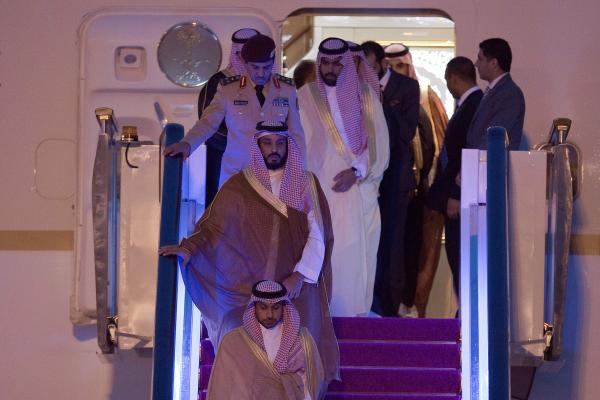China and India are countries that may play a crucial role in the near future of Saudi Arabia and the Gulf states in general. One key factor can change the equation because these two countries represent the two largest growing markets in the world at a time when other major markets are saturated or shrinking in terms of oil imports. Riyadh is turning towards the two countries, and this can be seen from the Saudi Deputy Crown Prince Mohammed bin Salman’s two successive visits to China, which are part of his efforts to cope with changes and keep up with the development of economic resources.
Many other industrial and oil producing states are racing to obtain a share of the Indian and Chinese markets. However, what distinguishes Saudi Arabia is that it is the cheapest, most equipped and largest oil reservoir in the world that is not subject to obstacles or sanctions, as is the case with Iran, for example.
Will Saudi Arabia be able to adopt a strategy of shifting towards the east after decades of relations with the west? Fortunately, at this stage there are no prohibitions like there were during the Cold War when countries used to take risks when they tried to change their political approach, that is if they were able to do so at all. Turning towards Chinese and Indian markets is not purely a political project as relations with the west will remain strong as western countries are the most influential in the region. The distinctive relationship with China and India will boost Saudi Arabia’s influence and regional and international strategic importance, in the West in particular.
Investing in a large economic project with the Chinese and Indians is not an easy task as it opens up a whole new world. It requires a positive drive with great governmental abilities. Companies, banks, funds, chambers of commerce, bilateral partnerships, businessmen, research and university centres and specialist government institutions will all play a major role in this drive.
Due to the fact that China is almost a single institution, it is easier to cooperate with it. Its government agencies and official institutions are the actual bodies managing foreign relations and transactions. As for India, its private sector mainly manages its affairs.
In our long established relations with major consumer markets like Britain and the United States, oil sales have been the basis for trade exchange. This still remains the primary factor in our dealings with China and India. However, today we are aiming for wide-ranging relations.
China and India are the only two countries that can compensate for shortages in western markets such as the decline in oil sales to the US market. It also offers great opportunity for the aspirations of the government to increase the country’s economic trade that requires more creative thinking and a greater dependence on the private sector to play a role that is characterised by flexibility, speed and adaptation.
China and India are similar in the sense that they are cautious of mixing politics and trade, although China is one of the main exporters of arms in the world and Saudi Arabia has had a successful experience with it since the 1990s. The special relationship that the two countries have with major powers will continue as long as they refrain from getting involved in regional wars and alliances.
